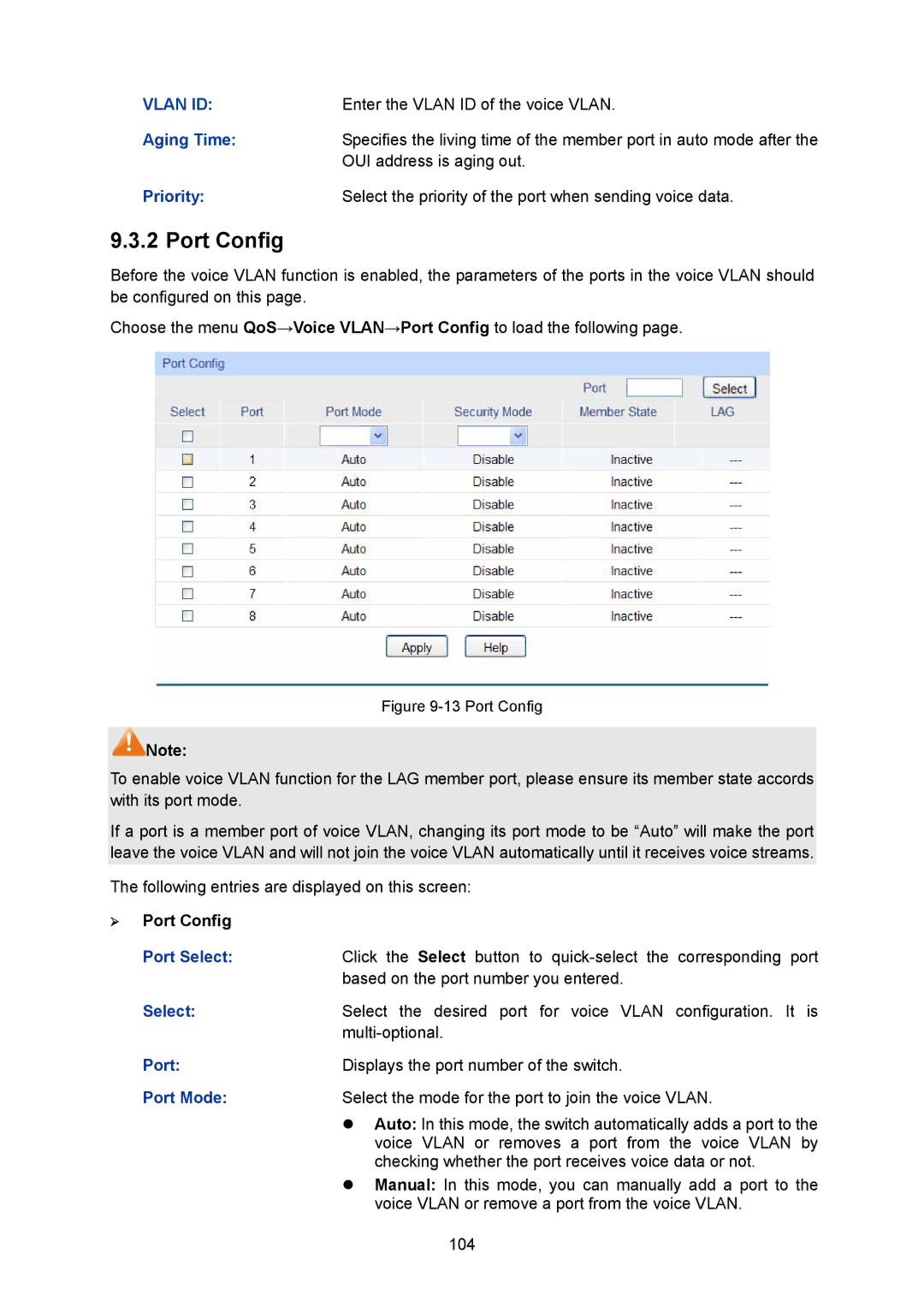
VLAN ID: | Enter the VLAN ID of the voice VLAN. |
Aging Time: | Specifies the living time of the member port in auto mode after the |
| OUI address is aging out. |
Priority: | Select the priority of the port when sending voice data. |
9.3.2 Port Config
Before the voice VLAN function is enabled, the parameters of the ports in the voice VLAN should be configured on this page.
Choose the menu QoS→Voice VLAN→Port Config to load the following page.
Figure 9-13 Port Config
![]() Note:
Note:
To enable voice VLAN function for the LAG member port, please ensure its member state accords with its port mode.
If a port is a member port of voice VLAN, changing its port mode to be “Auto” will make the port leave the voice VLAN and will not join the voice VLAN automatically until it receives voice streams.
The following entries are displayed on this screen:
¾Port Config
Port Select:Click the Select button to
based on the port number you entered.
Select: | Select the desired port for voice VLAN configuration. It is |
| |
Port: | Displays the port number of the switch. |
Port Mode: | Select the mode for the port to join the voice VLAN. |
| z Auto: In this mode, the switch automatically adds a port to the |
| voice VLAN or removes a port from the voice VLAN by |
| checking whether the port receives voice data or not. |
| z Manual: In this mode, you can manually add a port to the |
| voice VLAN or remove a port from the voice VLAN. |
| 104 |
